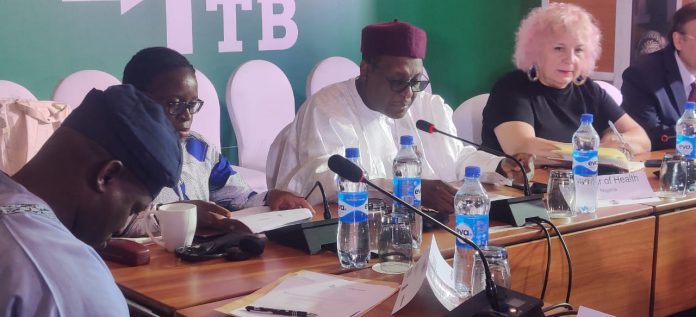From Abel Leonard, Lafia
Rt. Hon. David Emmanuel Ombugadu, representing the Global TB Caucus, has emphasized the need for innovative financing and strategic interventions to combat tuberculosis (TB) in Africa.
The Global TB Caucus, an international network of over 2,500 parliamentarians from more than 150 countries, continues to champion the fight against TB worldwide. Ombugadu’s advocacy explains the need for collective action to address the challenges posed by the disease and ensure sustainable solutions for its eradication.
Representing Global TB Caucus at the Africa Dialogue: Financing to End Tuberculosis in Abuja, Ombugadu noted the vital role of parliamentarians in addressing TB challenges and integrating solutions into national health systems.
The dialogue, held from December 10 to 11, 2024, at the Transcorp Hilton, Abuja, was hosted by the United Nations Office for Project Services (UNOPS) in collaboration with the African Union (AU), Nigeria’s Federal Ministry of Health, and the Stop TB Partnership. The event brought together key stakeholders, including representatives from the Global Fund, the Mineral Council, the Copenhagen Consensus Centre, and civil society organizations from across Africa.
In his remarks, Ombugadu reflected on his tenure as chair of the TB and HIV Committee in Nigeria’s House of Representatives and his co-chairmanship of the African TB Conference. He highlighted the importance of parliamentarians taking a lead role in advocacy and resource allocation for TB interventions.
“As parliamentarians, we have a unique responsibility to address TB in our constituencies. During my time in the House, I ensured that members were informed about the TB burden in their constituencies by providing data on affected individuals and available treatment facilities. This helped build understanding and support for TB interventions,” Ombugadu said.
He further emphasized integrating TB initiatives into existing health systems. “I worked to incorporate TB funding into Nigeria’s National Health Insurance Scheme (NHIS), with budgetary provisions to cover 17,000 lives in my constituency. Although only 4,000 lives were captured initially due to funding constraints, this demonstrates the potential of including TB treatment in health insurance programs,” he added.
Ombugadu also called for utilizing constituency project funds to address gaps in TB diagnosis and treatment. “I proposed that members of parliament allocate resources for purchasing TB scan machines. Although this initiative was not fully realized during my tenure, I plan to engage with the current House Committee on TB, HIV, and Malaria to revive this effort,” he said.
The Minister of Health, Professor Muhammad Ali Pate, who was a special guest at the event, commended the dialogue for fostering actionable solutions. He stressed the need for integrated funding approaches and sector-wide programs to combat TB effectively.
The focus of the discussions was on bridging funding gaps for TB control through innovative solutions such as leveraging the Global Fund, the Pandemic Fund, cross-sectoral financing through Primary Health Care (PHC) and Universal Health Coverage (UHC), and climate-related funding. A priority agenda item was issuing a joint statement on financing the “End of TB in Africa.”
The event concluded with a shared commitment to issuing a joint statement on financing TB eradication efforts across Africa. Stakeholders agreed on the critical role of parliamentarians, private sector collaboration, and innovative financing in achieving the goal of ending TB.














